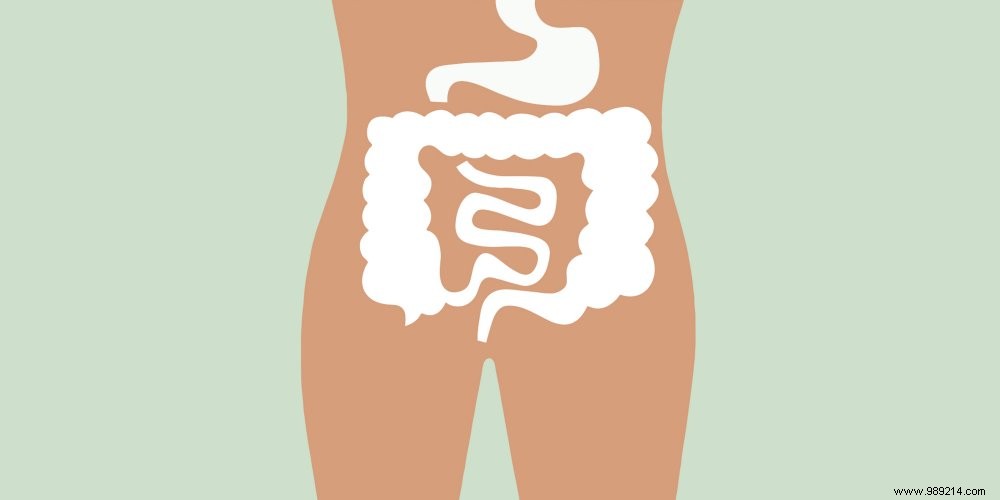 The recent discoveries around this ecosystem sound the revolution in our food and our pharmacy. But by the way, what exactly is the microbiota?
The recent discoveries around this ecosystem sound the revolution in our food and our pharmacy. But by the way, what exactly is the microbiota? Since scientists elevated the gut to "second brain status ", studies and books highlight this digestive wall that does infinitely more than transform the food bolus. Diets without gluten, without milk, or without fodmaps are thriving. And probiotics are invading pharmacies.
But what exactly is this famous intestinal microbiota that everyone is talking about?
"The medical revolution has only just begun", announces doctor Serge Rafal. In I take care of my colon (Leduc.s Editions), his second book devoted to the subject, the former Attaché en Premier at Tenon Hospital reaffirms the paradigm shift triggered by the latest studies on the microbiota:"Since 2010, bacteria are no longer the public enemy number 1; they open up new healing horizons and become de facto our allies."
Why only now? "From 1990 to 2004, medical research focused on the sequencing of the human genome. In 2010, these advances led to the conclusion that 99% of the bacteria in the microbiota are anaerobic. Translate:they live in an environment without oxygen", recounts Serge Rafal . This data invalidates all the old analyzes carried out on the stool. Science looks for the first time at the billions of bacteria, viruses, fungi and yeasts that make up the intestinal flora . The living whole weighs between 1.5 and 2 kg in weight in our body. A new medical chapter is being written before our eyes.
Video of the day:400 square meters of absorption surface, 100,000 billion bacteria and enzymes, two hundred million neurons that communicate live with the head… the intestinal microbiota brings rain and shine to the body – it manages its vital functions and morale! The second brain thus produces 95% of serotonin, a neurotransmitter involved in emotional management, but also dopamine, the happiness hormone". against, the machine goes into overdrive.
Explanations:the intestine extracts nutrients from food in order to provide the organs with the energy necessary for their functioning and defense. It is our first protective barrier against environmental toxins. When the intestine is assailed by bad bacteria, the latter take over the good ones and trigger local inflammation. If this persists, it damages the mucosa and induces intestinal hypermeability. Toxic substances enter the body like a mill. The inflammation spreads. Diseases set in.
In addition to the disorders directly linked to the imbalance of the digestive sphere (such as functional colopathy), many so-called civilization diseases can appear:cardiovascular, allergic, infectious, metabolic, neuro-degenerative... In short, the intestine and its flora are central to our health. Taking care of it is a priority.
An intestinal flora at the top ensures you a powerful immunity. Dr. Rafal's recommendations? Action 1:we overhaul our way of eating. Exit inflammatory products such as refined sugars, bad fats, and other substances that are difficult to metabolize. The good foods must drive out the bad ones! Compose your plate around large portions of vegetables and fruits. Be careful, some plants can generate gas, therefore discomfort; sensitive people will look into sensitive foods to avoid.
Action 2:put the soft pedal on gluten, dairy products, fodmaps - these difficult to assimilate sugars present in certain foods - and other allergens.
Action 3:reseed your flora with probiotics. Especially when taking antibiotics. "The microbiota gets out of balance easily. Stay vigilant. If you go abroad, you can catch a tourista simply because your diet changes slightly. The probiotic reflex is essential." A last burst of zeal? We chew each mouthful slowly, between thirty and forty times - satiety guaranteed. And we include daily portions of natural probiotics (fermented milks, sauerkraut, tempeh and soy miso, etc.), for top-notch intestinal assimilation.
Current experiments on the intestinal microbiota are yielding disturbing results and foreshadowing a completely new form of medicine. Illustration:if we inject intestinal bacteria from a naturally lean mouse into an obese mouse, the latter loses weight. "Some intestinal bacteria are gluttonous; they devour calories like in a packman video game", summarizes Serge Rafal.
Another telling experience:introverted mice to which intestinal bacteria from explorer mice have been grafted acquire audacity and fidget. "The microbiota has the power to change the morphotype but also the character of an individual. Pharmaceutical companies are working on a new generation of probiotics, which are increasingly targeted", underlines the doctor.
Psychobiotics, allergobiotics, rheumatobiotics… a new pharmacy is expected within two years. Among the other promising avenues:the transfer of faecal matter, washed and degassed. It is currently authorized in France for the treatment of very serious intestinal colitis. In the Netherlands, healthy stool banks are emerging. Other countries are studying the application of this innovative technique to the treatment of Crohn's disease or obesity. We say strongly tomorrow!
Read also: